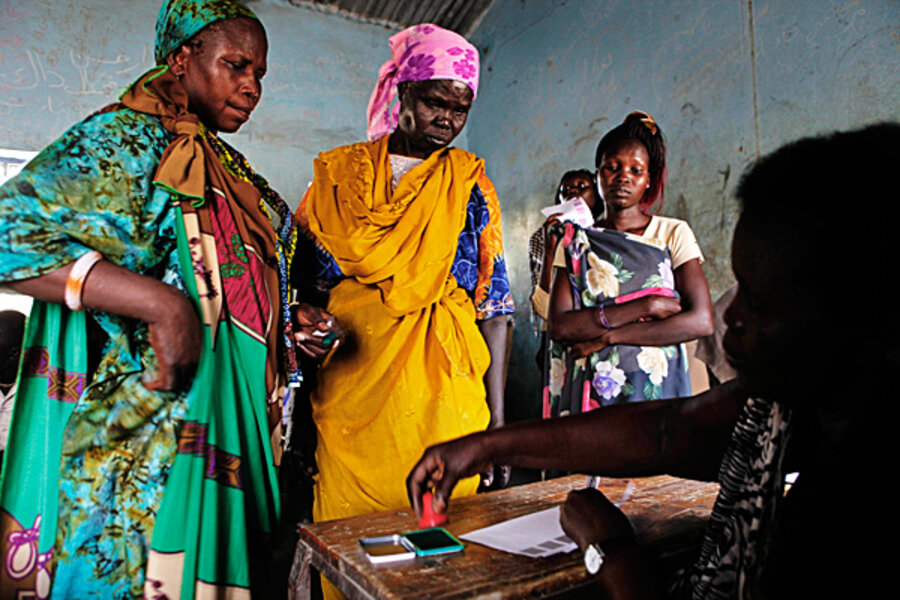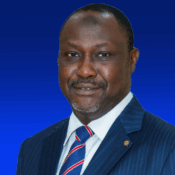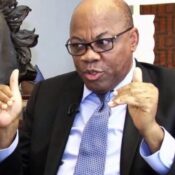
South Sudan’s crude revenue experiences a decline, and security forces remain unpaid for months
South Sudan’s economy is still suffering from the recent break-in of a vital oil pipeline; the country’s security forces haven’t received pay in nine months. A growing number of government employees and troops are quitting their professions to pursue side projects.
The economy of South Sudan is mostly dependent on the oil it exports through neighboring Sudan. However, the conflict in Sudan has caused widespread anarchy, and in February, a pipeline in a combat zone burst. The long-standing issue of official incompetence in South Sudan has been made worse by the decline in oil earnings.
Protests against low wages are currently taking place in the capital of the already unstable nation, and more are predicted. Additionally, its citizens are under pressure to find creative methods to make up for the pay discrepancy.
Maburuk Kuyu Surur, a deputy head teacher at a school in Juba, the capital, said he has been teaching for 36 years and has never seen a salary delay like this one. That goes all the way back to the years before to South Sudan’s 2011 independence from Sudan.
Surur added that although though education is free, he and other educators have been asking families for tiny amounts of money so they can assist their children.
“We are in pain,” the sixty-year-old stated.
The economic situation has been difficult for President Salva Kiir’s administration, which has ruled South Sudan since independence and is facing pressure from abroad to get the nation ready for postponed elections. Since 2020, the finance ministry has had six ministers; the most recent was dismissed in July.
When The Associated Press visited government ministries and other offices in Juba in recent weeks, they were largely unoccupied during business hours. The surviving staff said that coworkers had quit because they had grown weary of working without compensation since October.
One government employee said that her pay was only $8 per month when it was received. Since then, she’s been working in a restaurant, earning approximately $20 a day. She talked under the assumption that no one would find out.
“Every day, prices continue to rise,” she stated. Up to five times as much as it did a year ago can now be spent on a 50-kilometer bag of corn flour.
The World Bank reports that South Sudan’s inflation has increased by 35% in the past year. at the meanwhile, both at the official rate and on the black market, the local currency has fallen precipitously against the US dollar.
The president of South Sudan has publicly voiced his dissatisfaction with mismanagement as the country’s administration is forced to rely more on non-oil revenue sources like taxes on imported items, even while a third of the country’s oil still flows via another pipeline for export.
Although Kiir stated in July that such income ought to be sufficient to pay wages, the funds aren’t getting to government accounts.
After installing the newest finance minister, he declared, “We have nine solid months where people have not received their salaries, and we have money.”
Kiir gave the minister instructions to stop corrupt revenue collecting tactics and create a single account for all income.
When there was more oil coming, the government hadn’t given this as much attention, according to Boboya James, CEO of the Institute of Social Policy and Research in Juba.
According to him, corruption and bad policies have deprived the developing country of development funding, which is why the public finances are getting smaller.
There is still some outside assistance. A $46.2 million deal was recently inked by the government of South Sudan and the African Development Bank to promote agricultural productivity through December 2030.
International annoyance, however, has increased from certain allies who had previously applauded South Sudan’s independence. Even after the civil war ended many years ago, intercommunal violence persists. The United Nations claims that the work required to hold the elections, which were originally set for last year, is still unfinished. Nevertheless, they have been rescheduled for December.
In the landlocked nation, poverty and displacement are pervasive. According to the U.N., 75% of people are dependent on humanitarian help.
Among other things, South Sudan wants to increase the variety of its income sources through fruit and vegetable growing and tourism.
However, there are symptoms of weariness among its security personnel and public staff.
The foreign ministry stated in May that employees and diplomats serving in South Sudan’s overseas embassies have not received pay since 2019. Numerous people have survived with support from friends and family.
However, in June, after being evicted from his flat for nonpayment of rent, a senior South Sudanese official at the embassy in Rome was seen sobbing in a video that was uploaded online.
Hundreds of university professors and others have demonstrated over inadequate compensation at home in Juba. Security personnel stayed out of the way.
A portion of those security personnel are discreetly departing, looking for alternative sources of income.
Military member Akol Deng told the AP, “I have decided to desert my government job and become a charcoal broker.” Instead, he has been delivering charcoal to nearby homes and eateries.
All Categories
Recent Posts
Tags
+13162306000
zoneyetu@yahoo.com



